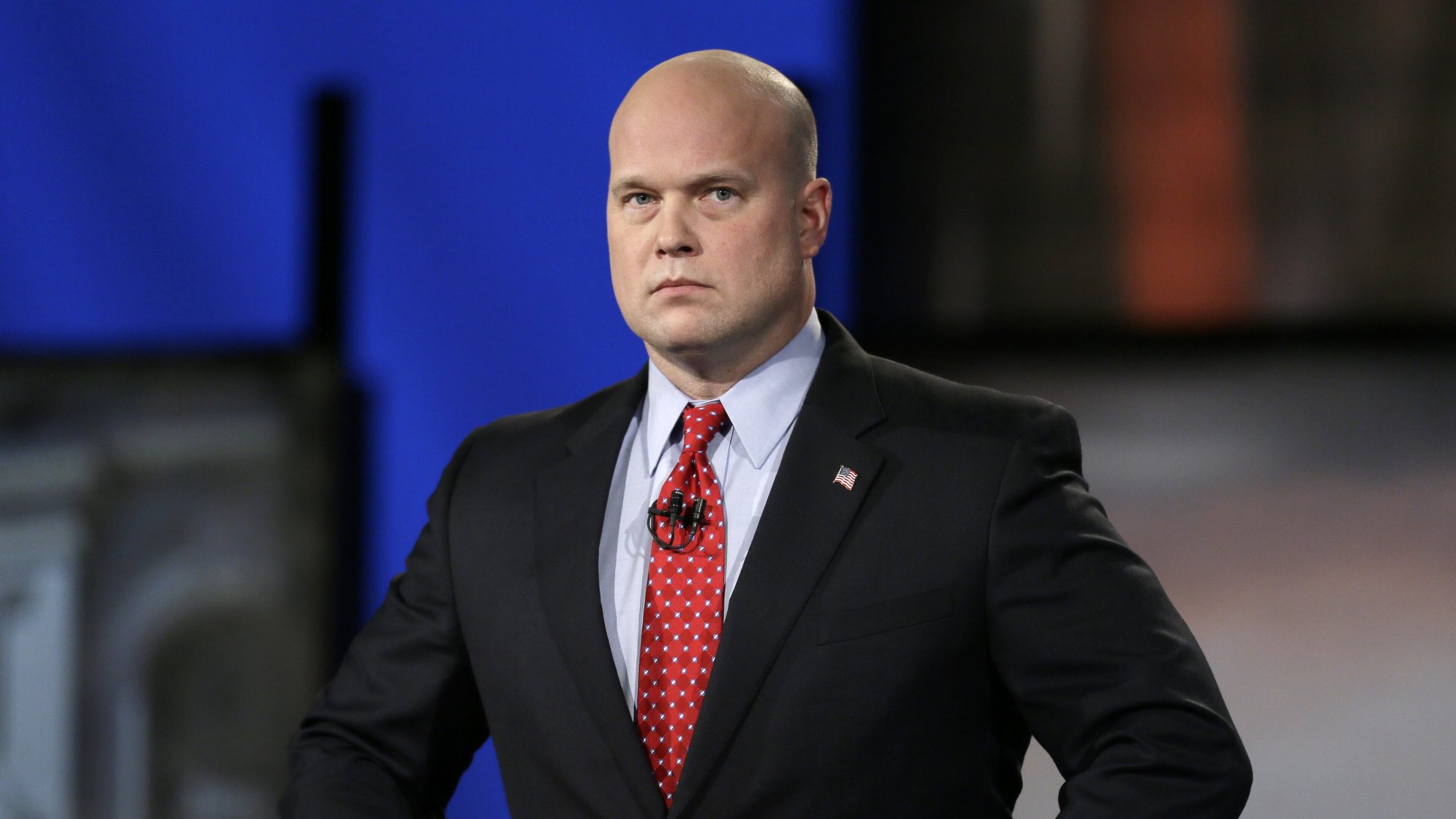Opinion: Trump’s obstruction of justice

Donald Trump has known for many months that he was going to dump Jeff Sessions as his attorney general at the very first opportunity. So he has had lots and lots of time to think about who and what he wanted in a replacement for Sessions, and he has used that time to give us Acting Attorney General Matthew Whittaker.
That’s the same Matthew Whittaker who, as a U.S. Senate candidate in Iowa, said that he would only vote to confirm federal judges who viewed the law through a biblical, Christian perspective, rather than a secular perspective, and who has said that opposition to gay marriage is non-negotiable to him.
The same Matthew Whittaker who listed Marbury v. Madison, the 1803 ruling that gave us judicial review and that serves as the cornerstone of U.S. jurisprudence, as the worst decision made in the history of the U.S. Supreme Court. The Whitaker who has also attacked Supreme Court decisions that allowed the minimum wage, Social Security, child labor laws and other New Deal programs.
That’s who Trump has named as our acting attorney general.
As we all know, however, Trump didn’t handpick Whitaker because of his stance on past Supreme Court cases -- Trump doesn’t know about or give a damn about such things. Instead, Trump installed Whitaker as head of the U.S. Department of Justice because he sees Whitaker for what he is, a political hack who will do the president’s bidding.
In his previous career as a right-wing media pundit, Whitaker repeatedly advocated bringing the Mueller probe to a quick end. He has argued that it was perfectly fine for Donald Trump Jr. to seek campaign assistance from the Russian government, and that Russia did not try to interfere in the 2016 election. He has suggested that there was “something fishy” about Robert Mueller’s appointment, and has argued that as president, Trump had every right to order FBI Director James Comey to end an investigation into Mike Flynn, and to fire Comey when he refused.
Now, as acting attorney general, Whitaker has the authority to supervise from within the DOJ the very investigation that he tried to undermine from outside. He can prevent Mueller from issuing a subpoena to Trump. He can slash Mueller’s budget. He can block indictments or even fire Mueller, and try to stop him from issuing a final report.
Whitaker is, in short, the personification of obstruction of justice.
It’s also important to point out that Whitaker is assuming the vast powers of U.S. attorney general without being vetted and confirmed for such a role by the Senate. In fact, given his history and extreme legal views, it is highly unlikely that Whitaker could win that confirmation, even in a Republican-controlled Senate.
In addition, legal experts now argue that without Senate approval, Whitaker’s appointment as acting attorney general is unconstitutional. Among those making that argument are prominent conservative lawyers such as John Yoo, Andrew Napolitano of Fox News and George Conway Jr., husband of Kellyanne Conway.
"The Constitution says that principal officers must go through appointment with the advice and consent of the Senate. In Morrison v. Olson, the Supreme Court made clear that the attorney general is a principal officer. Therefore, Whittaker cannot serve as acting attorney general," as Yoo puts it.
The requirement of Senate confirmation for top jobs such as attorney general goes to the very core of the Constitution's system of checks and balances. Writing in the Federalist Papers in 1788, Alexander Hamilton explained that by requiring Senate confirmation, the Founders hoped to stop a president from appointing men of "the necessary insignificance and pliancy to render them the obsequious instruments of his pleasure."
In other words, from the ancient mists of our history, some 230 years ago, Hamilton is pointing his finger into the future and directly at Whitaker, “the obsequious instrument” of Donald Trump’s pleasure.
As Hamilton also acknowledged, the system of checks and balances assumes that the Senate will step up and do the job assigned to it by Constitution, that it will refuse to be bullied or controlled by an overly ambitious president. He professed faith in that assumption, arguing that "a portion of virtue and honor" exists even in "the most corrupt periods of the most corrupt governments." The idea that a president "could in general purchase the integrity" of Congress "would be forced and improbable," he argued.
On that point, we shall see.
